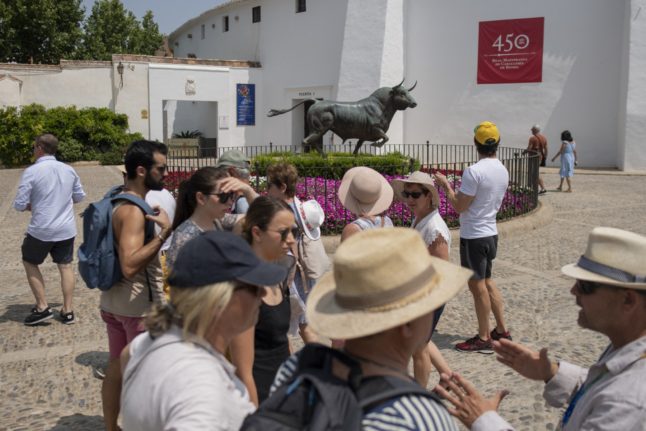During the period, Spain welcomed 19.7 million tourists, an increase of 17.2 percent over the figures for same period in 2020, the National Statistics Institute (INE) calculated.
Prior to the pandemic — when Spain was the world’s number-two tourist destination and the sector accounted for some 12 percent of its economy — nearly 70 million people visited in the first nine months of 2019, the INE said.
Although the data point to an improvement in the tourism sector, they fall far short of the government’s forecast for some 45 million visitors this year — approximately half that of 2019.
The figures “confirm that the recovery of international tourism is under way and that in 2022 we could return to pre-pandemic levels,” said Tourism Minister Reyes Maroto.
In September, tourist arrivals stood at 4.7 million, an increase of more than 300 percent from the same month in 2020.
Maroto said Spain was hoping to welcome between “10.7 and 10.9 million” visitors in the last three months of the year.
In the first nine months, the largest number of visitors were French, accounting for more than four million arrivals, followed by Germans who
made up 3.4 million visits, and Britons who accounted for 2.3 million.
In the same period, the most popular destinations were the Balearic Isles, the northeastern region of Catalonia, and Andalusia in the south, the INE said.



 Please whitelist us to continue reading.
Please whitelist us to continue reading.
Member comments